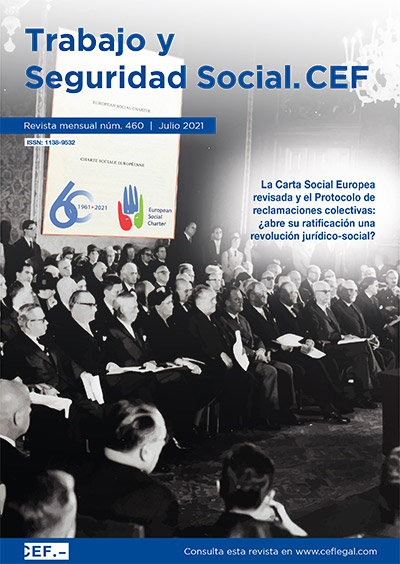Working time and on-call periods
DOI:
https://doi.org/10.51302/rtss.2021.2430Keywords:
working time and rest time, effective work, on-call periods, conciliation rights, occupational health and safety, European Social CharterAbstract
The doctrinal and jurisprudential criteria on working time establishes that this is the temporary space in which the worker is in their job and performing their activity and functions for the person who hired them. This corresponds to the definition of Directive 2003/88/CE, and in contrast to this, rest time is the entire period that they are not working. A number of questions then arise regarding the periods in which, when not actually working, employees have to be available to the company. In the light of the dichotomy between working time and rest time, the doctrine of the Court of Justice of the European Union has been engaging the interpretation of intermediate time periods based on case studies. On the other hand, the jurisprudence of the European Committee of Social Rights, based on the provisions of article 2 of the European Social Charter, has indicated that the so-called on-call periods, as long as the worker is available to provide services, even when this entails an absence from effective work, cannot constitute a sufficient standard to consider this period as a time of rest.



















